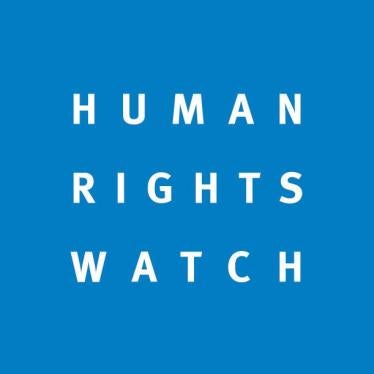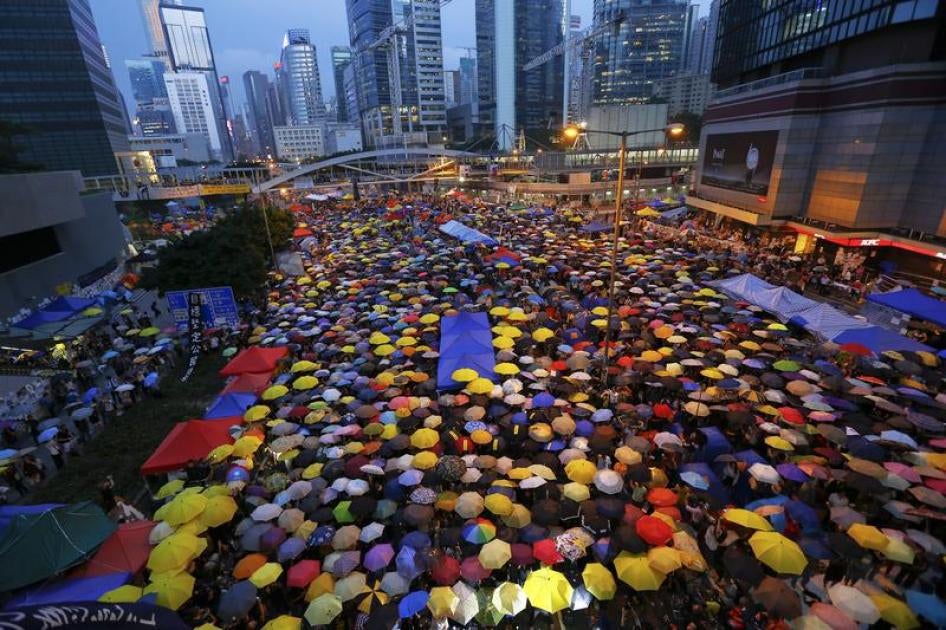Ten years ago, on Sept. 28, 2014, hundreds of thousands of Hong Kongers spilled onto the city’s streets and occupied its thoroughfares, angry over the Chinese government’s sly move to further restrict the process of selecting Hong Kong’s top official. This months-long “Umbrella Movement” in turn precipitated the more confrontational, but more broad-based, 2019 democracy protests.
The Chinese government crushed the protests by imposing the draconian National Security Law on the city in June, 2020, criminalizing long-protected freedoms.
Now, dozens of people are awaiting sentencing under that law in the biggest – and one of the most consequential – political trials in Hong Kong.
The defendants have been convicted of having violated the National Security Law by conspiring to “subvert” the government by organizing an informal primary election in 2020 in the hopes of winning seats in the then-semi-democratic legislature.
They have had a chance to speak out in court. In this precedent-setting trial in the new authoritarian Hong Kong, they must decide what to say – and thus where they stand – on the Chinese government.
The stakes cannot be higher. They could receive very lengthy sentences – up to life in prison, in fact. Some have stayed silent. Others have buckled under more than three years of coercive pretrial detention, publicly recanting their beliefs and recasting their activism as a foreign-instigated plot.
Yet some of those who submitted court statements have persisted in speaking out.
“In the protest, even though it was hot and crowded, I was deeply struck by everyone’s pursuit of justice,” Hong Kong nurse-turned-activist Owen Chow wrote in his court statement. “I realized that the difficulties my family experienced were not unique … but shared by hundreds of thousands of families.”
Mr. Chow, now 27, explained that his teenage self was awakened when he first marched alongside others in the city’s early pro-democracy protests in 2012. He wrote that the protests made him realize that, though he grew up at the bottom of Hong Kong’s social strata, his poverty was not a personal failure, but the result of structural and social inequality. He became a nurse to help others, and in 2020, he joined dozens of activists to run in the informal primary.
Another among this group was Leung Kwok-hung, known as “Long Hair,” the 68-year-old veteran activist and former lawmaker. In his court statement, he wrote about his – and Hong Kong’s – long road to freedom: “I have never given up. For nearly 50 years, my black hair has turned white, my long hair has turned short, and a free man has become remanded [in pretrial custody], but I still act with this faith … to fight for democracy and social justice.”
Those involved in the unofficial primary reasoned that if they could win more than half of the legislative seats, they could, according to procedures, veto the Hong Kong government budget. They would then be able to force the city’s chief executive to resign and put pressure on the Hong Kong and Chinese governments to fulfill their pledge to give Hong Kong people genuine democratic rule.
Four years into Beijing’s crackdown on Hong Kong, that plan now seems like a pipe dream. To the outside world, the city’s democracy struggle has all but been smashed: its leaders are jailed, there are no more protests, and Hong Kongers are increasingly being silenced.
But Mr. Chow begs to differ. “While the movement was a failure in that we did not get the democracy we desired … it has made me believe that through participation, we really have the ability to change society, and to push for justice,” he wrote.
Mr. Chow’s story exemplifies the transformative potential of social movements. They are not about short-term gains or losses of one or two protests; they are about how a society and the individuals within it see themselves and, as Mr. Chow puts it, “reimagine their future” – forever changing them by being part of something bigger, and standing up for themselves.
This appears to be why Beijing is bearing down on the group: so that it can rewrite Hong Kong history and neutralize the transformations that have taken root in Hong Kong since the Umbrella Movement and beyond.
Yet, some refuse to stand down. “ ‘Power to the people’ has been my lifelong belief,” Mr. Leung wrote. “Even though I have become a prisoner … I shall have no regrets.”








